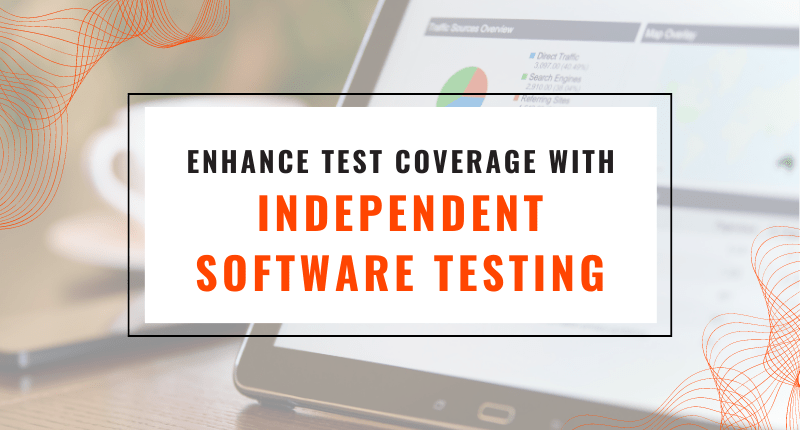In software development, ensuring high-quality products and meeting customer expectations are paramount. One crucial aspect of achieving this is comprehensive test coverage. Thorough testing guarantees that software operates flawlessly, minimizing the risk of defects and enhancing user satisfaction. Independent software testing plays a pivotal role in achieving this goal. In this blog, we will explore the significance of independent testing in enhancing test coverage and how it benefits the overall development process.
What is Independent Software Testing?
Independent software testing refers to the process of testing a software product by a team or individuals who have not been involved in its development. The independent testers are unbiased, impartial, and objective in evaluating the software’s functionalities, user experience, and performance. They can be in-house teams separate from the development team or third-party testing services hired specifically for this purpose.
Advantages of Independent Software Testing in Enhancing Test Coverage
1. Unbiased Perspective: Independent testers bring a fresh set of eyes to the project. They approach the software without any preconceived notions or biases, ensuring a more objective evaluation. This approach helps uncover potential issues that may have been overlooked by the development team.
2. Increased Test Coverage: Independent testers employ various testing techniques and methodologies that expand the test coverage. They are more likely to identify corner cases, edge scenarios, and unexpected interactions, which might not have been covered by the development team.
3. Early Detection of Defects: Independent testing starts as soon as the development phase begins. This early engagement helps identify and rectify issues in the early stages, leading to significant cost savings and shorter development cycles.
4. Enhanced User Experience: Independent testers focus on user-centric testing, ensuring that the software meets end-users expectations. They provide valuable feedback on the user interface, usability, and overall user experience, leading to a more polished product.
5. Performance and Scalability Assessment: Independent testers can conduct performance and scalability testing under realistic scenarios, simulating real-world conditions. This ensures that the software can handle varying workloads, preventing potential performance bottlenecks.
6. Reduced Time to Market: Early detection of defects and streamlined testing processes result in faster bug resolution, enabling the development team to release the software within the planned timeframe.
7. Risk Mitigation: Independent testing reduces the risk of releasing a flawed product to the market. By identifying and addressing potential issues in advance, it minimizes the chances of costly post-release bug fixes and reputation damage.
Best Practices for Implementing Independent Software Testing
1. Collaboration and Communication: Foster open communication between the development and testing teams. Share project requirements, timelines, and expectations to ensure a coordinated effort.
2. Test Planning and Strategy: Define a comprehensive test plan and strategy that aligns with the project’s objectives. Identify critical areas to be tested and allocate appropriate resources.
3. Test Automation: Implement test automation wherever possible to speed up the testing process and achieve consistent results. Automated tests can be run repeatedly, ensuring consistent evaluation of the software.
4. Documentation: Maintain clear and detailed documentation of test cases, results, and defects. This helps in tracking the testing progress and facilitates better collaboration.
Conclusion
Independent software testing is a valuable approach to enhance test coverage and ensure the delivery of high-quality software products. By bringing a fresh perspective, extensive test coverage, and early defect detection, independent testers play a vital role in the success of any software development project. Embracing this approach leads to more robust and reliable software, boosting customer satisfaction and establishing a competitive advantage in the market.




